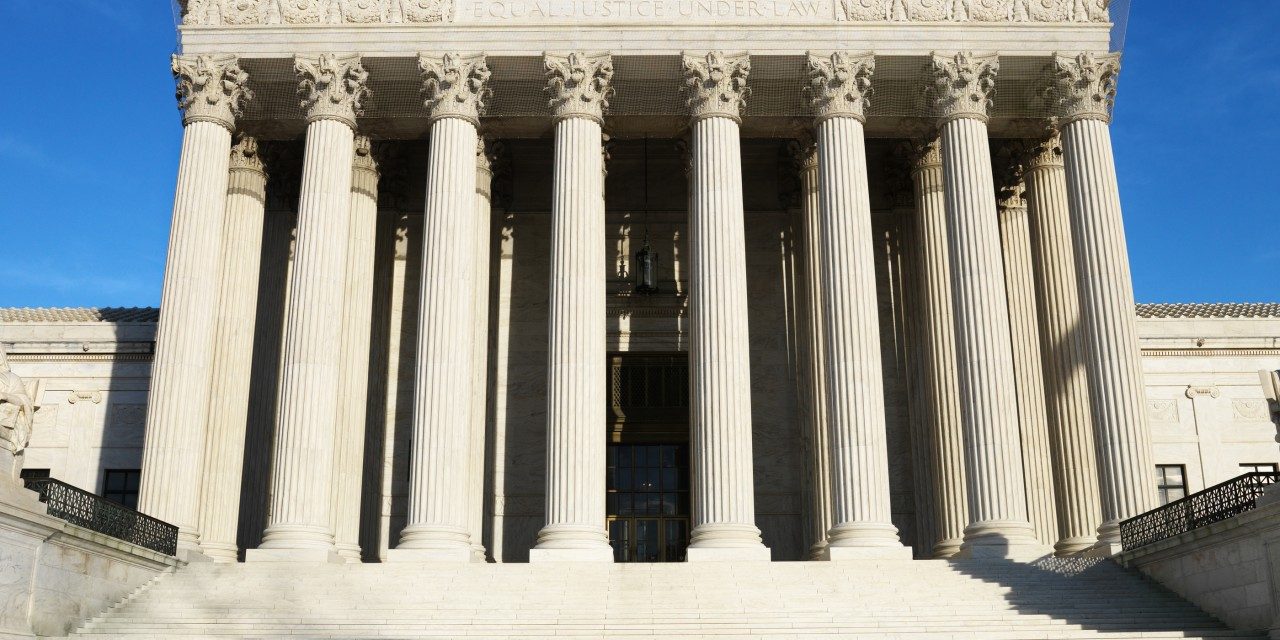EDITOR’S NOTE: The original version of the story indicated Asbury University sued the Biden Administration when it was, instead, Asbury Theological Seminary.
WASHINGTON (BP)—The next step in the debate surrounding Pres. Biden’s mandate requiring employees to receive the COVID-19 vaccine took place Friday, Jan. 7. Oral arguments on the constitutionality and a request for delaying the mandate were presented before the U.S. Supreme Court. Biden’s order, set to go into effect Jan. 10, would affect businesses with 100 or more employees.
“The Supreme Court arguments today centered around whether OSHA has the ability to issue and enforce broad vaccine and testing mandates, touching the lives of approximately 84 million private sector employees. Several justices raised the possibility of a temporary stay of the rule being issued in the interim,” said Chelsea Sobolik, national public policy director of the Southern Baptist Convention Ethics & Religious Liberty Commission.
The mandate is facing challenges on many levels, including charges that it violates the religious liberties of employees and employers.
“I oppose and have opposed in the very beginning any form of mandate, especially when that comes in the context of such a highly politicized environment and one in which issues of genuine religious conscience are at stake,” said Albert Mohler, president of Southern Seminary on his Friday edition of The Morning Briefing.
Southern Seminary and Asbury Seminary filed suit against the Biden Administration in November citing the fact that both schools have employees who do not want to receive the vaccine based on religious convictions.
“The Southern Baptist Theological Seminary led a suit against the Biden administration’s vaccine mandate precisely because it is an unconstitutional imposition and intrusion into the life of a Christian institution creating a relationship between the employer and employees that allows for no understanding of the religious conscience issues at stake,” Mohler said.
He added that the mandate would force the seminary to act as an agent of the government.
“It would turn a religious institution, such as a theological seminary, into what is in effect, a regulatory agency as an extension of federal power. I think that’s not only unconstitutional, it should be unconscionable,” Mohler said.
Sobolik believes the case is about more than the COVID pandemic. Rather, the primary focus of the case is where the lines of restraint should be drawn for government.
“Ultimately, questions about the limits of government regulation, both in terms of public health and safety, were raised, and that is what the Court will grapple with as they render their decision. We maintain the state must restrain itself from using public health emergencies to overstep and exert authority that the Constitution has not entrusted it with,” Sobolik told Baptist Press.
Mohler stressed he is not anti-vaccine.
“Once again, let me make clear, the issue here is not the vaccine,” he said. “I have taken the vaccine. I encourage the vaccine. Evangelicals traditionally have been pro-vaccine even as we have been pro-medicine in the appropriate sense, but there is, at the same time, a separate question.”
The separate question being whether the state can force employers to require vaccination of their employees despite potential religious objections and force employees to receive the vaccine or face losing their jobs.
If the mandate goes into effect, employees will have 30 days to receive the first dose of the vaccine or face the consequences.
During Friday’s arguments, Supreme Court justices did not indicate when they plan to rule on the constitutionality of the mandate or if they would provide a stay.




